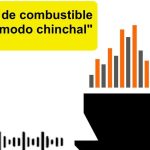The Central Government allocated a tiny budget to benefit from the agrarian bonus in the Huancavelica region, reported Héctor Palacios López, director of statistics for the Huancavelica Regional Directorate of Agriculture.
“The drought was catastrophic, so much damage or mortality of livestock had not been seen for a long time, that is why we have submitted the request for an emergency declaration, and they declared it, through DS 145, to 54 districts that suffered from water deficit,” said Palacios Lopez.
YOU CAN ALSO SEE: Council declares an emergency for agriculture and livestock in Huancavelica
He noted: “Not even alpaca districts such as Pilpichaca, Santa Ana, Ascensión were considered.”
In Huancavelica, last December, 54 districts were declared an emergency, of which only 20 were considered, because in Lima they left this information aside and took into account what the Senamhi records say, minimizing losses totals.
However, not content with reducing the number of beneficiaries, they also put up barriers, the same ones that Palacios López explained.
One of the requirements is to have been registered only until December 13, the date on which many affected did not, another limitation to receive the agricultural bonus is to have a maximum of 12 alpacas, if you have 13; 20 or 100 alpacas, are no longer beneficiaries of the voucher.
It should be noted that in the last agricultural census they registered 75,000 farmers in the region, however, registered farmers already add up to 85,000 throughout the region; however, now they estimate that there would already be 10,000 more.
YOU CAN ALSO SEE: 80% of farmers do not have irrigation in Huancavelica
However, despite the large number of producers affected by the last drought, the bonus given by the government would only benefit 10,000 farmers, explained the agrarian official.
“There was a bad decision here, how can they decide only with the SENAMHI report that only they are harmed, they did not pay attention to the emergency rule either, there is a big mistake,” the official said indignantly.
He narrowed down: “Through the agrarian bonus there is no longer so much hope, it is not attending to what we want, the decree says that regional and local governments must attend, they will only have to modify because they will not give them one more sun.”
For this reason, following a decision by the Regional Council, the Regional Directorate of South American Camelids will be given just over one million soles, while the figure for the agrarian directorate will be close to 800 million soles.
Both figures are totally insignificant to face the emergency, which will mean that a minimal solution will be given, given the risk of shortages that could exist due to little agriculture.


















